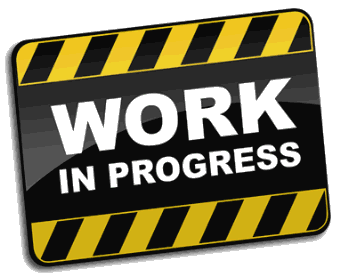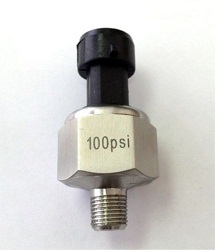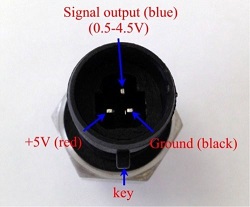Difference between revisions of "Analog Pressure sensor"
Jump to navigation
Jump to search
| Line 13: | Line 13: | ||
3 How can you make sensible readings with ESPEasy | 3 How can you make sensible readings with ESPEasy | ||
| − | Ad. 1 With one of the many freely available converters on the internet, you can easily discover that 1 Bar (100.000 Pascal) equals to 14,5037737796859 PSI (pound per square inch) | + | Ad. 1 With one of the many freely available converters on the internet, you can easily discover that 1 Bar (100.000 Pascal) equals to 14,5037737796859 PSI (pound per square inch). This sensor ranges from 0 to 6,89475729 Bar. |
Ad. 2 It only takes a simple network of resistors to match measured voltages to the input specifications of the ESP8266 | Ad. 2 It only takes a simple network of resistors to match measured voltages to the input specifications of the ESP8266 | ||
Ad. 3 This takes some calculation. | Ad. 3 This takes some calculation. | ||
---- | ---- | ||
Revision as of 23:17, 9 September 2016
When you want to measure pressure of liquids like oil or water, you could buy one of the pressure sensors on the internet, like this one:
It is very easy to install, has an analog output and a linear conversion. There are however a number of challenges:
1 If you want to measure pressure in Bar, how is it converted from PSI 2 How can voltages higher than 1.0 or 3.3 volts be measured with the on-board ADC 3 How can you make sensible readings with ESPEasy
Ad. 1 With one of the many freely available converters on the internet, you can easily discover that 1 Bar (100.000 Pascal) equals to 14,5037737796859 PSI (pound per square inch). This sensor ranges from 0 to 6,89475729 Bar. Ad. 2 It only takes a simple network of resistors to match measured voltages to the input specifications of the ESP8266 Ad. 3 This takes some calculation.



